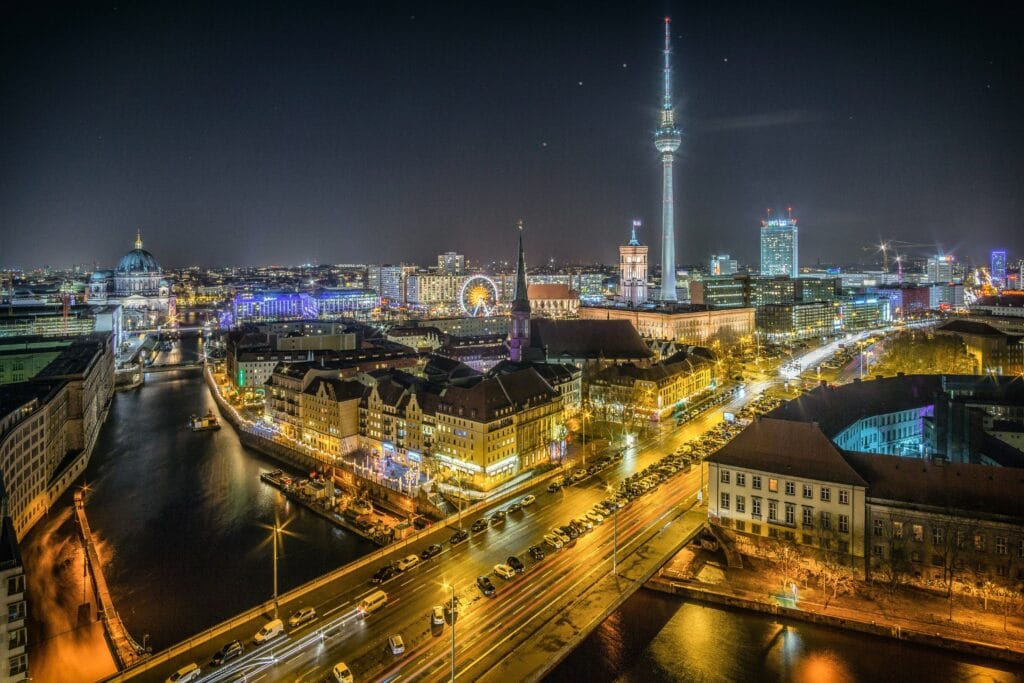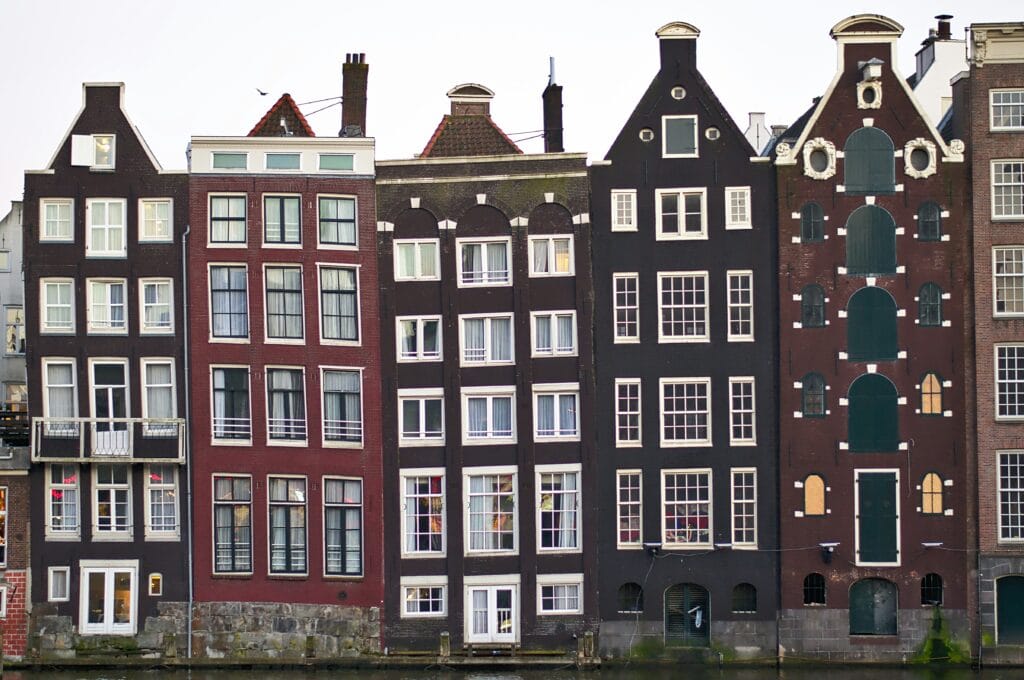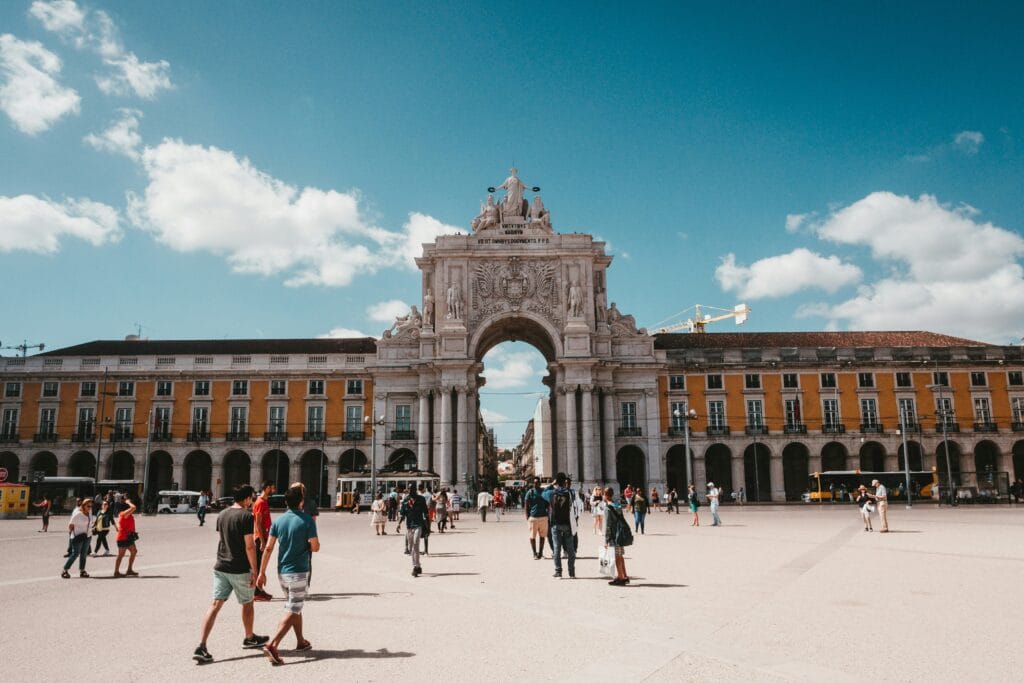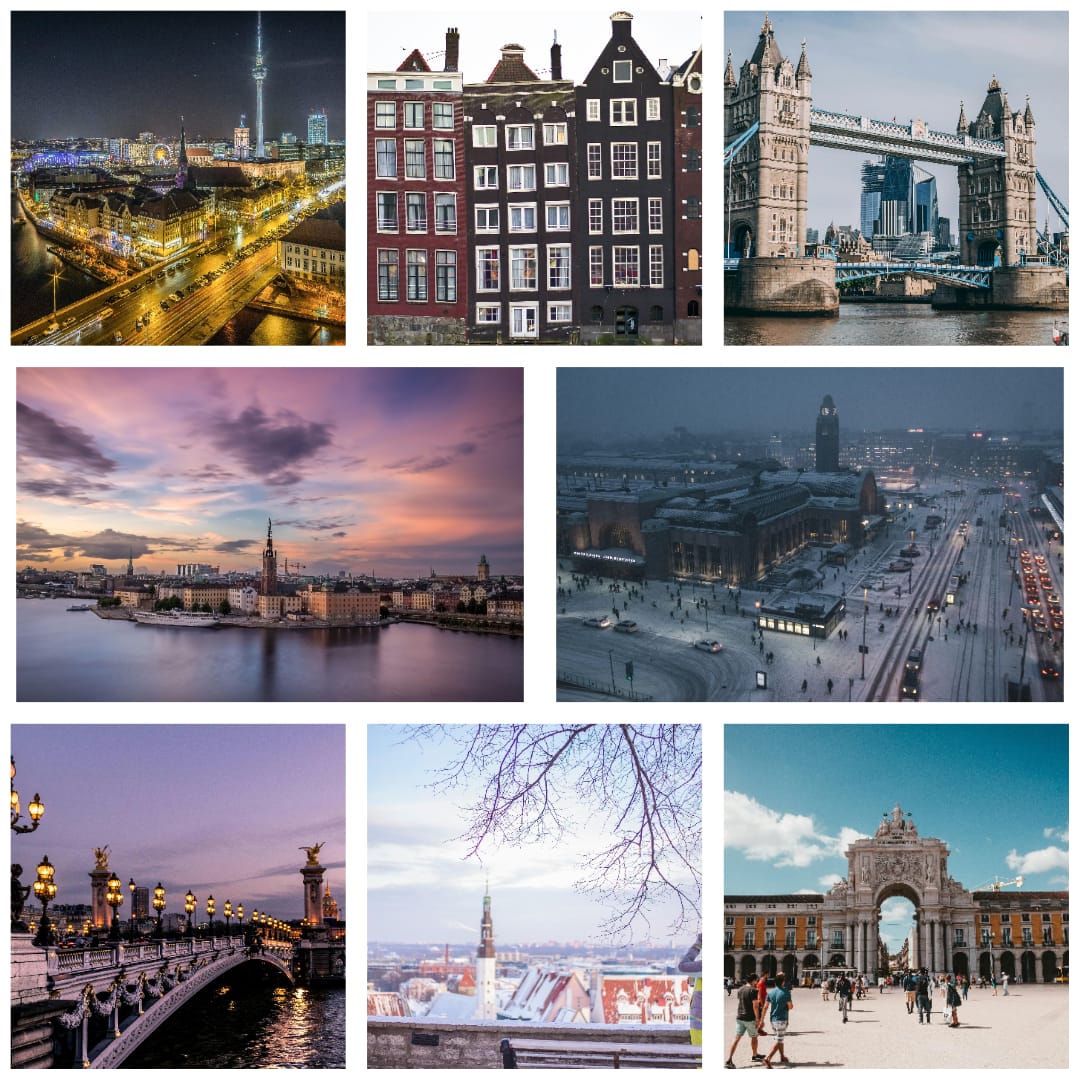Launch Startups in 2025! Europe is a hub of innovation, boasting a blend of vibrant cities that cater to launching your startup with thriving ecosystems, funding opportunities, and a high quality of life. As 2025 approaches, the competition among these cities continues to heat up, with some emerging as exceptional destinations for entrepreneurs. Let’s explore the top 10 European cities to consider for launching your startup in 2025, don’t forget to reach “Startup Europe” by the European Commission
1. Launch Startups in Berlin, Germany

Berlin remains a hotspot for startups, offering low operational costs compared to other major cities like London or Paris. The city’s diverse talent pool, access to venture capital, and strong community support make it ideal for tech and creative startups. Not to mention, government initiatives like the High-Tech Strategy promote innovation-driven enterprises.
Berlin’s startup scene grows because of its strong support networks. Organizations like Berlin Partner help businesses find funding and resources. The city’s mix of industries—from tech to creative arts—attracts diverse talent, fostering innovation.
Germany’s corporate tax rate is around 30%, which includes federal, municipal, and solidarity taxes. However, startups can benefit from reduced taxes in their early stages. Berlin also offers R&D tax credits and incentives for tech and green innovations.
2. Launch Startups in Amsterdam, Netherlands

Known for its work-life balance and English-friendly environment, Amsterdam is perfect for startups aiming to attract global talent. The city is home to cutting-edge accelerators and enjoys proximity to international markets. Sectors like fintech, sustainability, and artificial intelligence thrive here.
Amsterdam’s startup ecosystem thrives due to its business-friendly policies. The city offers tax incentives and access to startup visas. Accelerators like Startupbootcamp provide mentoring and funding opportunities, helping businesses scale fast.
The Netherlands has a corporate tax rate of 19% for the first €200,000 of profits and 25.8% for anything above. The Innovation Box scheme allows reduced tax rates on profits from innovative projects. This makes Amsterdam attractive for tech-driven startups.
3. Launch Startups in London, United Kingdom

Despite the challenges of Brexit, London remains a top choice due to its financial power, access to investors, and diverse markets. The city’s robust legal frameworks and a plethora of accelerators like Techstars and Seedcamp provide a strong foundation for startups.
London’s startup growth is driven by its access to capital and global markets. It hosts top venture capital firms and investors. The city also has a large consumer base, making it easier to test and launch products.
The UK has a corporate tax rate of 25%, but startups can access relief programs like the Enterprise Investment Scheme (EIS). R&D tax credits allow businesses to reclaim up to 33% of qualifying costs, significantly reducing tax burdens.
4. Launch Startups in Stockholm, Sweden

Often referred to as the “Unicorn Factory,” Stockholm has produced global giants like Spotify and Klarna. Its tech-savvy population and commitment to sustainability attract startups focusing on green technology and digital services. The city also boasts generous government grants for entrepreneurs.
Stockholm supports startups with its tech-savvy workforce and focus on digital industries. Government grants and incubators like SUP46 help startups grow. The city’s push for sustainable solutions aligns with global trends, attracting green tech investments.
Sweden’s corporate tax rate is 20.6%, one of the lower rates in Europe. Startups benefit from simplified tax systems and deductions for R&D expenses. Stockholm also supports companies with favorable payroll tax reductions for small businesses.
5. Launch Startups in Barcelona, Spain

Barcelona offers more than sun and sea—it’s a growing tech hub with a thriving startup ecosystem. Its relatively low cost of living, access to international markets, and focus on sectors like gaming, blockchain, and health tech make it a solid choice.
Barcelona’s affordable living costs and strong tourism industry fuel its startup success. Events like 4YFN (Four Years From Now) connect entrepreneurs with investors. Its focus on gaming, blockchain, and health tech drives innovation in these areas.
Spain’s corporate tax rate is 25%, but startups can enjoy reduced rates of 15% for the first two years of profit. Barcelona offers tax credits for research, development, and technological innovation, making it attractive for tech startups.
6. Launch Startups in Paris, France

Paris has transformed itself into a startup haven, thanks to initiatives like French Tech and Station F, the world’s largest startup campus. With its vast talent pool and strong funding landscape, the city is particularly attractive for fashion, luxury, and tech startups.
Paris attracts startups with initiatives like Station F and tax breaks for tech companies. The city also offers access to a well-educated talent pool. Many international corporations collaborate with startups, boosting opportunities for growth.
France has a standard corporate tax rate of 25%, but small and medium-sized enterprises (SMEs) pay a reduced rate of 15% on profits up to €42,500. Startups can benefit from the Crédit d’Impôt Recherche (CIR), a tax credit that covers up to 30% of R&D expenses.
7. Launch Startups in Tallinn, Estonia

Tallinn’s e-residency program has revolutionized how entrepreneurs access global business opportunities. Known for its digital-first approach, Estonia’s capital is a paradise for tech-driven startups. The city also offers low taxes and easy company registration.
Tallinn’s e-governance and digital-first systems simplify business processes. Startups benefit from low bureaucracy and quick registration times. Estonia’s small size encourages close collaboration between companies and policymakers, ensuring fast support.
Estonia’s tax system is one of the simplest in Europe. Corporate income tax is only applied when profits are distributed, with a flat rate of 20%. This allows startups to reinvest their profits tax-free, aiding growth in their early years.
8. Launch Startups in Lisbon, Portugal

Lisbon is rapidly gaining popularity due to its affordability, growing tech scene, and excellent quality of life. Events like Web Summit have put the city on the global startup map, and sectors such as fintech and tourism innovation flourish here.
Lisbon’s rise as a startup hub is tied to its affordable operations. Office rents and salaries are lower than in most European cities. The Web Summit attracts global attention, creating connections for startups in fintech and tourism tech.
Portugal’s corporate tax rate is 21%, with lower rates for small and medium-sized enterprises on the first €25,000 of taxable income. Lisbon also offers R&D tax incentives and grants for startups in innovative sectors.
9. Launch Startups in Helsinki, Finland

Helsinki is a rising star in Europe’s startup landscape, thanks to its focus on sustainability and cutting-edge research. The city is ideal for startups in health tech, education tech, and AI. Government-backed funding and access to Nordic markets sweeten the deal.
Helsinki’s government provides funding and access to research facilities for startups. The city focuses on sectors like health tech and artificial intelligence. Strong ties with universities help startups gain technical insights and skilled employees.
Finland’s corporate tax rate is 20%, making it competitive for European startups. The government provides additional tax incentives for businesses investing in renewable energy and technology development. Helsinki also has programs offering payroll tax reductions for startups.
10. Launch Startups in Copenhagen, Denmark

Copenhagen combines a highly skilled workforce with a focus on sustainable innovation. Known for its strong sense of community, the city supports startups in clean energy, biotech, and design industries. Its business-friendly policies and excellent infrastructure make it an appealing option.
Copenhagen’s focus on sustainability drives innovation in clean tech and biotech. Programs like GreenBiz and clusters like Medicon Valley support startup growth. The city’s small but skilled workforce ensures access to top talent.
Denmark’s corporate tax rate is 22%, but startups benefit from generous R&D tax credits. Copenhagen offers up to 130% deductions on R&D expenses, which can significantly reduce taxable income. The city also provides financial support for green and biotech ventures.
Conclusion: Choosing the Right City
The right city for your startup depends on factors like your industry, target audience, and budget. Europe offers a plethora of choices, each with its unique advantages. By considering these top 10 cities, you’ll position your startup for success in 2025.
Have insights or questions? Share this article and spark a discussion! Your next big opportunity could be waiting in one of these cities.
Read more about Business & Finance
